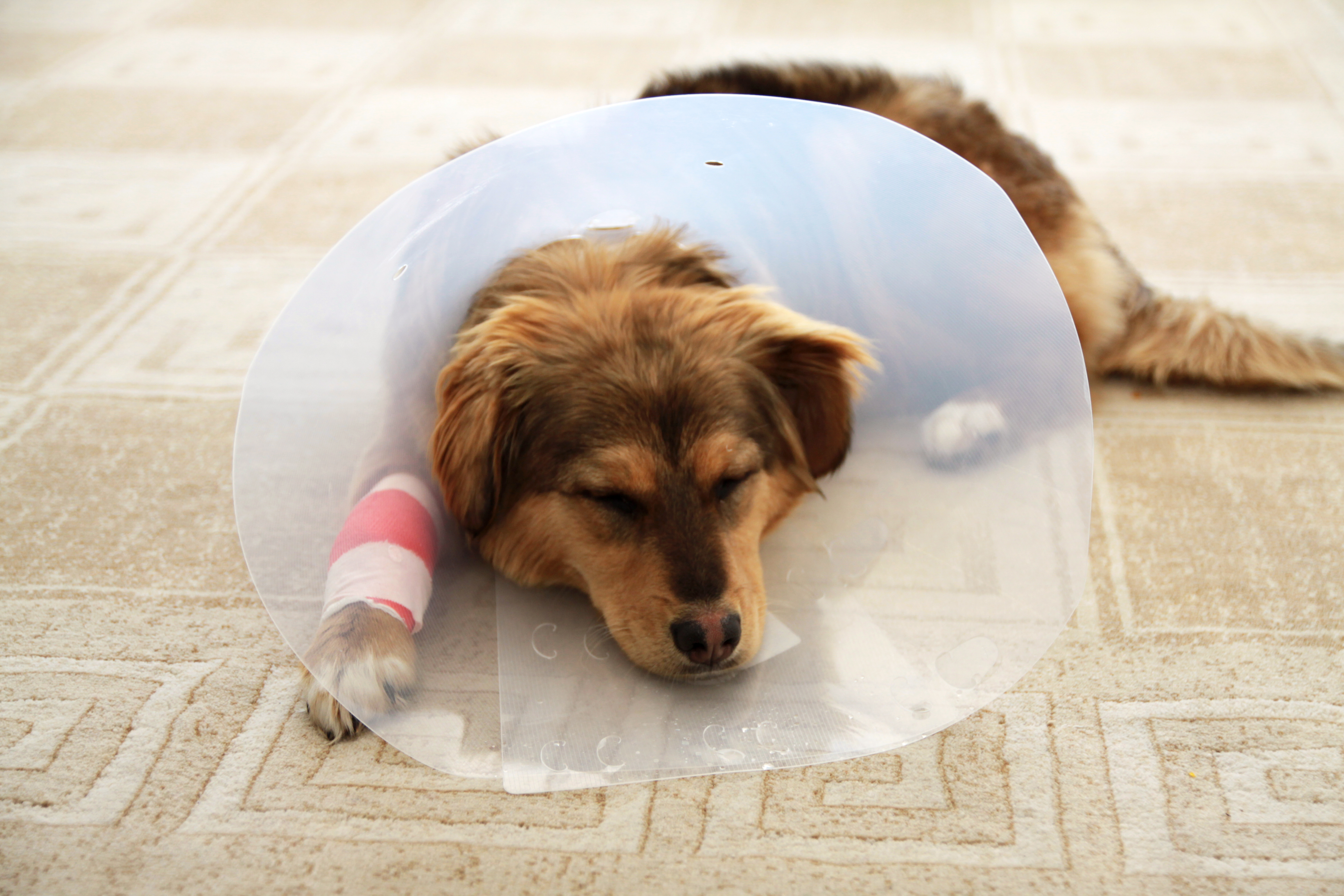There is a common folk belief that animal saliva especially that of Dogs has healing properties for human wounds. Many people still feel that as a natural response of a dog to a.

But wild animals are busy staying safe and finding food whereas a well fed pampered pet can devote a lot of time to licking a wound making it more extensive and sore in the process.
Is it ok for a dog to lick its wound. It is not only do dogs have a natural instinct to immediately lick any wound inflicted on them. Humans too have a reflex to lick or suck on any cuts they suffer think about the first thing you do when you get a paper cut. Many mammal species cats rodents horses primates are known to exhibit wound-licking behavior.
The practice of allowing dogs to heal wounds with licking dates back as far as the Egyptian age where dogs were allowed to lick the open wounds of humans in the belief that their saliva could heal. The following compounds are present in canine saliva and are thought to have antimicrobial and healing properties. Every veterinarian knows that animal patients are driven to lick wounds.
We have all seen the destructive force it can be in surgical wound healing. I can recognize a wound that has been licked the instant I see it. Not only does licking potentially introduce infection but the act of licking can break down tissues and suture.
Many people still feel that as a natural response of a dog to a. Your dog should not be allowed to lick or chew the open wound. Many dogs will require a protective collar see handout Elizabethan Collars in Dogs for more information to prevent them from injuring the site.
It is important to prevent the skin from healing over the wound too quickly. Once you have cleaned out your dogs wound you want to make sure that they avoid licking it. Over-licking can both further the wounds problematic nature as well as cause more harm to the wound.
Home remedies to prevent your dog from licking its wound. If your cut is small you may feel comfortable with your dog licking and attending to your wound. If that is the case it is suggested that you allow your dog to lick your wound.
It is important to make sure your dog has been fully dewormed and checked by the veterinarian. It can be helpful in trusting this process so no infection is created. Although your dog means well when it tries to lick your wounds canine saliva can cause infections in humans.
As dog bites carry risk of infection so does licking. It is rare for dog saliva to cause serious injury but it has in more than one case. If your dog chews or licks excessively there is a danger of the stitches being pulled out or of infection being introduced into the wound.
If your dog persists in licking its incision you may have to purchase an Elizabethan collar to prevent this behavior see handout. Up to 20 cash back Is it safe for my dog to be licking his wound after his stitches have been removed. They were taken out March 15th.
- Answered by a verified Dog Veterinarian. We use cookies to give you the best possible experience on our website. For wild or feral dogs licking is probably beneficial in cleaning a wound.
But wild animals are busy staying safe and finding food whereas a well fed pampered pet can devote a lot of time to licking a wound making it more extensive and sore in the process. So limiting access to wounds particularly surgical ones with stitches is important. Dogs will naturally lick any wound on their bodies they can reach with their tongues as its just instinct for them to do so.
Because this is such common behavior many people believe that when a dog licks a wound it will promote healing. Pets mouths are made for licking wounds they say so to heck with you neurotic vets and your expensive post-surgical accoutrements. Such was the case with one recent client after her dogs routine neuter at which time she swore up and down that hed never need the lampshade ie an Elizabethan collar.
Licking wounds is an instinct that many mammals including dogs have. It is common for animals like cats primates and rodents to lick their injuries. Sometimes they can even lick the scrapes and cuts of other animal species.
This instinct reduces the risk of infection as. Wound licking is an instinctive response in humans and many other animals to an injury. Dogs cats rodents and primates all lick wounds.
There is a common folk belief that animal saliva especially that of Dogs has healing properties for human wounds. Evidence for this comes from a number of historical traditions. Contrary to the old wives tale our pets mouths have a lot of germs in them and saliva does not heal woundsinstead it becomes a source of infection.
If your pet licks at the incision more than even once or twiceespecially if you have to tell your pet to stopyou need to do something right away to get this cycle stopped. Sometimes its fine but other times you need to stop your dog from licking a wound because overlicking can cause more harm than good. Theres a belief that a dogs saliva can help heal wounds.
This has some truth to it but unfortunately the healing properties of dog saliva are overblown.